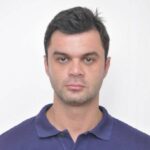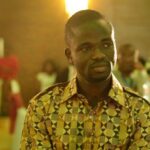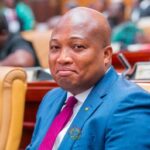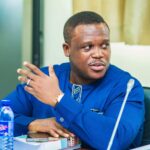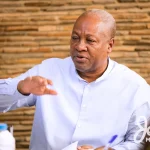The Member of Parliament for Shai-Osudoku Constituency in the Greater Accra Region, Linda Obenewa Akweley Ocloo has said he is “very much impressed as a Member of Parliament for Shai-Osudoku to see one of our illustrious sons doing an amazing work both locally and internationally in the health sector”.
She made this remark whiles giving an opening speech at the 1st Africa Traditional & Alternative Medicine conference organized by the Nyarkotey College of Holistic Medicine at its Ashaiman Campus, Accra, Ghana last week Thursday, June 21, 2019.
According to the MP, the outstanding contribution of the young medical researcher into the health sector both nationally and internationally “indeed, it tells the good people of Ghana, that, Shai-Osudoku constituency under my jurisdiction has produced one of the most outstanding and foremost medical researchers recognized globally at a tender age”.
“I couldn’t hide my joy when he was recently adjudged the Scholars Academic and Scientific Society (SAS) Best Researcher Award in the field of Traditional Medicine in India, a home of natural and conventional Medicine” – She said
“Not only is Dr. Raphael Nyarkotey Obu achieving international laurels but in 2018, also won the prestigious National 40under40 Achievers Award in education category here in Ghana and was also recently honored with the title ‘ The Name in Science’ by the Academic Union of Oxford, UK, and so many enviable records for a young man from Dodowa. His story is one of resilience, determination, persistence and one that delegates and youth in Shai-Osudoku should emulate that, with God all things are possible” – She added
Read her full speech.
Opening Speech by Hon. Linda Obenewa Akweley Ocloo, Member of Parliament, Shai-Osudoku Constituency, at the 1st Africa Traditional & Alternative Medicine conference held at the Nyarkotey College of Holistic Medicine, Ashaiman Campus, Accra, Ghana.
Distinguished Directors of Nyarkotey College of Holistic Medicine
Distinguished Academic Staff
Distinguished delegates
Media
All protocol observed
Ladies and Gentlemen,
- It gives me a great pleasure to welcome all of you to the 1st Africa Traditional & Alternative Conference held here in a beautiful city of Ashaiman. I would like to express my appreciation to the founders of Nyarkotey College of Holistic Medicine for their great stride in establishing the first ever Holistic Medical School accredited by the Ministry of Health, Traditional & Alternative Medicine Council (TMPC) to train well-qualified physicians of Naturopathic Medicine.
- I am very much impressed as a Member of Parliament for Shai-Osudoku to see one of our illustrious sons doing an amazing work; both locally and internationally in the health sector. Indeed, it tells the good people of Ghana, that, Shai-Osudoku constituency under my jurisdiction has produced one of the most outstanding and foremost medical researchers recognized globally at a tender age. I couldn’t hide my joy when he was recently adjudged the Scholars Academic and Scientific Society (SAS) Best Researcher Award in the field of Traditional Medicine in India, a home of natural and conventional Medicine.
- Not only is Dr. Raphael Nyarkotey Obu achieving international laurels but in 2018, also won the prestigious National 40under40 Achievers Award in education category here in Ghana and was also recently honored with the title ‘ The Name in Science’ by the Academic Union of Oxford, UK, and so many enviable records for a young man from Dodowa. His story is one of resilience, determination, persistence and one that delegates and youth in Shai-Osudoku should emulate that, with God all things are possible.
- Today, we are here to witness the first ever International conference on Alternative Medicine. We are here to discuss traditional and Alternative medicine because in some communities in India, China, Germany and so many powerful countries, this has been a crucial part of healing for thousands of years.
- In some Asian and African countries, 80% of the population depends on traditional medicine for primary health care according to the World Health Organization. The provision of safe and effective Traditional Medicine could be a critical tool for increasing overall access to health care.
- Today, in Ghana, Some government Hospitals have Traditional Medicine Departments and one notable example is the Shai-Osudoku District Hospital in my constituency. This means, you can walk to the Shai-Osudoku hospital today and request to see a traditional medicine practitioner and your request will be granted.
- The World Health Organization (WHO) defines traditional medicine as the sum total of knowledge, skills and practices based on the theories, beliefs and experiences indigenous to different cultures that are used to maintain health, as well as to prevent, diagnose, improve or treat physical and mental illnesses. Traditional medicine that has been adopted by other populations – outside its indigenous culture – is often termed Complementary or Alternative Medicine (CAM).
- Some countries have realized the role and contribution that Traditional Medicine/Complementary or Alternative Medicine (TM/CAM) might play. Traditional medicine is, on the whole, widely available and affordable yet this type of medicine has not been fully recognized by the existing healthcare systems in most countries.
- Distinguished Participants, it has been recognized that traditional medicine has a long history in our communities with wide impact. It is still, an important component part of modern health care system – playing a significant and indispensable role in many countries. Various types of Traditional Medicine (TM) and medical practices referred to as Complementary and Alternative Medicine (CAM) have been increasingly used in developed and developing countries alike. Traditional medicine originates from a strong historical and cultural heritage at the local level and is introduced and practiced by well-known and respected members of the community. The community had – and has – confidence in practitioners’ abilities and remedies. However, the development of traditional, complementary and alternative medicine faces some significant challenges including:
i. Diversification of policy, regulation and technical: Many countries may have national policies for traditional medicine. However, regulating traditional medicine products, practices and practitioners is difficult because of major variations in definitions and categorization of traditional medicine therapies.
ii. Knowledge and sustainability: Herbal materials for products are collected from wild plant populations and cultivated medicinal plants. The expanding herbal product market could drive over-harvesting of plants and threaten biodiversity. Poorly managed collection and cultivation practices could lead to the extinction of endangered plant species and the destruction of natural resources. Efforts to preserve both plant populations and knowledge on how to use them for medicinal purposes is needed to sustain traditional medicine.
iii. Availability and accessibility: Traditional medicine is practiced in many countries, but it is not always integrated as part of the health system recognized by governments. It is one of many types of non-standard health services which involve varying levels of training and efficacy. However, scientific evidence from tests done to evaluate the safety and effectiveness of traditional medicine products and practices is limited. Increased patient awareness about safe usage is important, as well as more research, collaboration and communication among providers of traditional and other medicines.
iv. Standardized service/practices and training: Traditional Medicine/Complementary or Alternative Medicine (TM/CAM) practices usually pass from one generation to the next. There is little or no standardization. If Traditional Medicine/Complementary or Alternative Medicine (TM/CAM) is to be integrated into existing health services and to be accepted by health professionals, in addition to strengthening the evidence based on safety, quality and efficacy, standardized practices/services with measurable therapeutic outcome will be needed. Training on Traditional Medicine/Complementary or Alternative Medicine (TM/CAM) which now is available in some countries should be standardized.
- Distinguished Participants, in addressing those challenges mentioned above, a multi-sectoral/disciplinary approach is critical. In addition to strengthening national capacities and relevant legislation; there is a need for concerted action and cooperation by governments, key stakeholders, and health professionals, to ensure proper use of traditional medicine as an important component contributing to the health of all people.
- I hope that during this conference, we will be able to deliberate carefully and have a fruitful discussion, enhance our collaboration and coordination, share knowledge and lessons learned and provide inputs for a comprehensive work plan on Alternative Medicine.
- I would also like to call on the government one district one factory project to collaborate with experts in Natural Medicines to develop and formulate health products from the herbal sector.
- Would also call on colleague parliamentarians to help pass the Traditional and Alternative Medicine bill 2018.
- In summary, I would like to thank Nyarkotey College of Holistic Medicine in organizing such as significant event. I would like to express my sincere thank you to Nyarkotey College of Holistic Medicine for taking such a bold steps to address the traditional and Alternative Medicine in Ghana and Africa entirety.
I wish the conference a resounding success.
Thank you.





